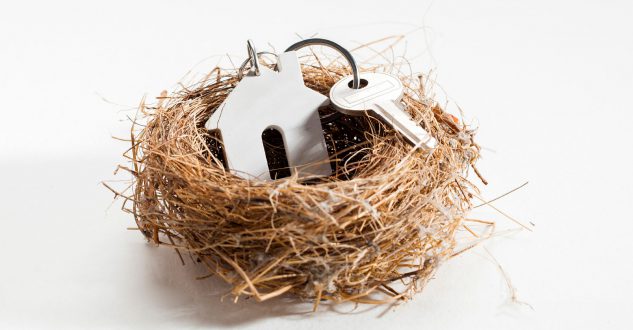
Here’s a look at the most common options to invest in real estate, along with the pros and cons of each.
Vacation homes
You might yearn for a house on the beach or a cabin in the woods, but fear you can’t afford it. Well, maybe you can swing it – and make some money at the same time – by renting it out when you’re not there.
Pros : Renting out the property can offset the cost of maintaining a second home. Plus, sites such as Airbnb, VRBO and Vacasa have made it a snap to market your property to vacationers.
Cons : While your vacation home may well turn out to be a moneymaker, you’ll have to shell out a fair amount upfront. Income, down payment and credit score requirements are often higher when financing a second home, and you may face higher interest rates as well, so be sure to research that carefully. As far as taxes go, it matters how often you rent out the home. Finally, you have to be comfortable with strangers living in your home and using your stuff – and factor costs associated with that. Your maintenance costs will include not only the walls of your property, but the maintenance of your personal property as well.
In-law suites
Some homes come with an in-law suite or detached apartment, but it’s often not a huge investment to build a unit above a garage or convert a finished basement to include its own entrance, bathroom and kitchen area for a tenant.
Pros : It’s easier to manage the property because of its proximity to your living space. There’s not much additional maintenance; you’ve got to mow your own lawn anyway. Plus, you can write off the costs of maintaining the unit on your taxes.
Cons : You’ll be living in very close quarters with your tenants. They’re basically a glorified roommate. The rent that you collect on such units is less than what you’d get on other types of properties. You may run into zoning issues in some communities that don’t allow you to take in tenants, so get a certificate of occupancy before you set up shop.
Single-family homes
Whether it’s a condo or stand alone house, this type of investment is generally pricier than the options mentioned above. But the rewards may be worth it : Many investors who scooped up singe-family homes during the housing bust are making big profits renting them out to people who’d rather rent than buy but still want the lifestyle afforded by living in a house.
Pros : There’s always a demand for single-family homes. Appreciation typically outpaces that of other investment properties, and it’s also easier to find a buyer if you decide you no longer want to own the property.
Cons : In addition to facing a higher cost to purchase, you’ll be relying on a single revenue stream. This means if your tenant moves out, you have to have enough money to cover costs until you find a new tenant. That said, tenants in single-family homes tend to stay put, so you may not be scrambling as much as you think.
Small apartment buildings
If you have a sizable pile of cash to invest, why not pour it into a multifamily building? Places with four or fewer units can be purchased with traditional financing, and they’re a good option for folks who plan on living in one unit and renting out the others.
Pros : Multiple unit buildings provide multiple revenue streams, so if one apartment goes vacant, you can rely on rent from the others to help offset costs while you look for a new tenant.
Cons : We hope that you’re handy with tools! Each of the revenue streams is attached to a tenant, so except double or triple the number of calls about leaky toilets or heating issues. Also, if the tenants have issues with each, they’re going to expect you to play mediator.

